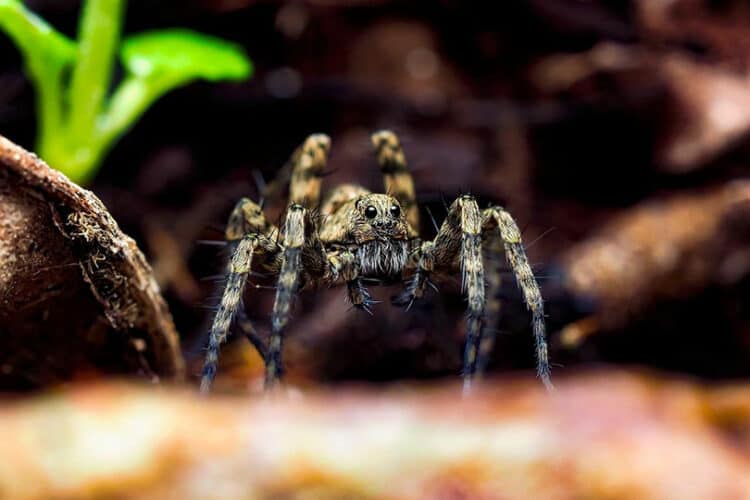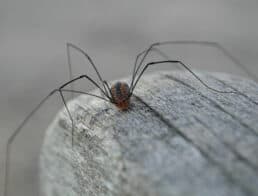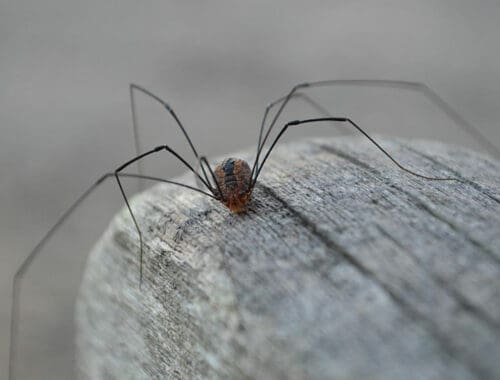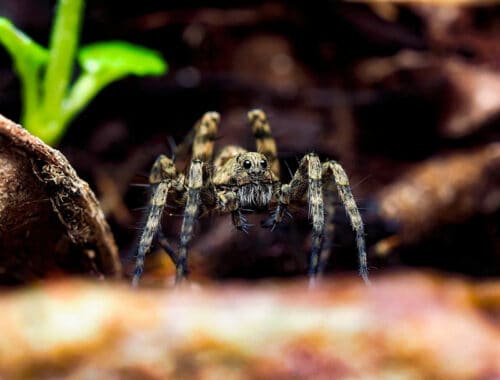Few people are fond of spiders, especially when they are lurking about the house. And nobody wants to deal with a spider bite! If you have pets, though, it’s not just you or your human family you should be concerned about—our pets run the risk of being bitten as well.
Wolf spiders can be found in most places in the United States, but the chances of encountering one are fairly rare as they aren’t fond of coming face to face with others. However, because they live in most areas, there’s always a chance your dog could be bitten by one, which begs the question—are wolf spiders poisonous to dogs?
The answer is yes, they are. The good news is the larger your pet, and the quicker you get your dog to the vet, the less likely the poison is to be fatal. Wolf spider venom is meant to paralyze bugs and small prey, so it will have less effect on larger animals. The other good news is that dogs and wolf spiders typically avoid one another, so the chances of your pup being bitten are small.
What to Do If Your Dog Is Bitten By a Wolf Spider
If you see your dog displaying the below symptoms and think it could be due to a wolf spider bite, it’s advisable to get them to the vet immediately. Not getting your dog to the vet quickly enough could result in the bite becoming fatal.
Symptoms can include:
- Limping
- Licking at the site of the bite
- Trembling
- Restlessness
- Vomiting
- Fever
- Trouble breathing
- Arrhythmia
Your vet will need to know if you saw a spider bite them and what kind of spider it was. If you aren’t 100% the bite is from a wolf spider, your vet will have to do tests to determine what caused it. After that, they can begin treatment of your pet.
If your pet was brought to the vet quickly enough, recovery from a wolf spider bite should go well.

How to Avoid Wolf Spider Bites
Though wolf spiders will normally avoid people and pets and only bite when they feel threatened, you might want to take steps to ensure you don’t have a wolf spider infestation in your home.
For the inside of your home, ensure the exterior doors of your home are sealed well with weather stripping or something similar, as spiders can get in through any gaps. Vacuum your home every week to pick up any crumbs that could bring insects into your home (which, in turn, brings in spiders). You’ll also want to clean counters in the kitchen and ensure no crumbs or food scraps are lying around, attracting bugs.
You can also lessen the chances of wolf spiders coming into your home by doing a bit of work on the outside of your house. Removing any vegetation close to your home and any lumber or wood lying about will help (again, because these things lure insects that bring in spiders). You can also make sure that any lighting around your home is kept to a minimum, as bugs are attracted to light, and wolf spiders are attracted to bugs.
Final Thoughts
Experiencing your four-legged friend getting a wolf spider bite can be a scary experience. If you see the symptoms mentioned above, you’ll want to get your pup to a vet straight away so they can be treated. The quicker your dog is treated, the less likely the chances of the bite being fatal.
However, wolf spiders typically don’t hang around in plain view and don’t usually bite unless threatened, so the risk of your dog being bitten by one is relatively low. You can also lessen that risk further by taking a few steps to protect your home from spiders.
Featured Image Credit: Pixabay














